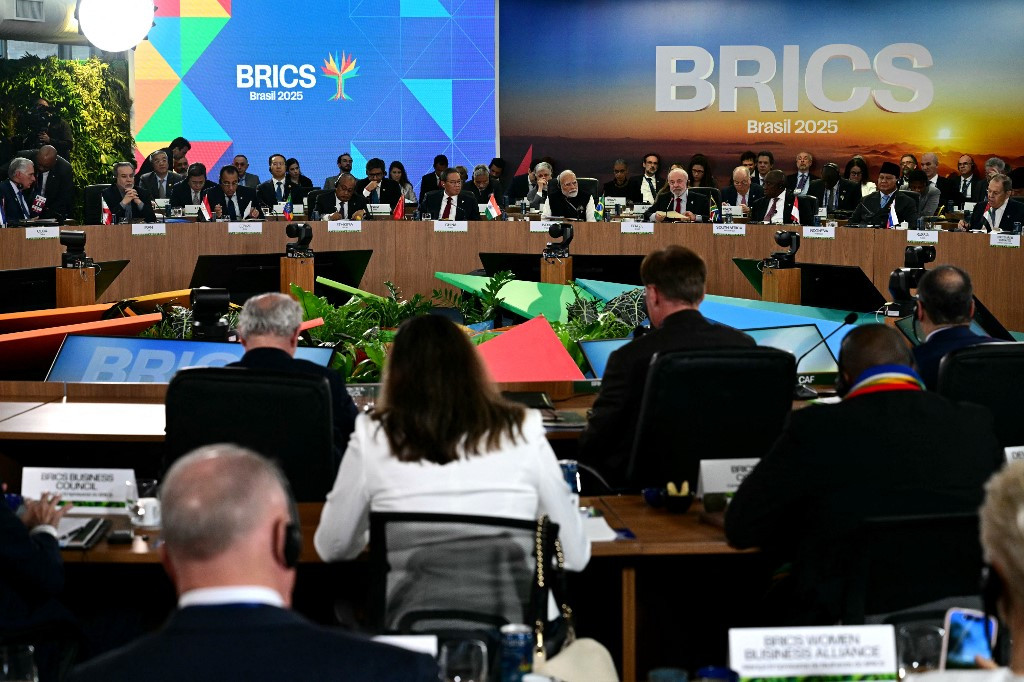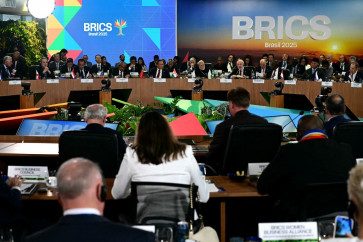Popular Reads
Top Results
Can't find what you're looking for?
View all search resultsPopular Reads
Top Results
Can't find what you're looking for?
View all search resultsBRICS and the future of global diplomacy
BRICS nations, with their diverse technological and intelligence capabilities, are well-positioned to develop innovative conflict-resolution mechanisms that go beyond outdated Cold War frameworks.
Change text size
Gift Premium Articles
to Anyone
T
he unprecedented direct military exchanges between United States/Israel and Iran, marked by missile barrages, drone swarms and the first-ever state-to-state attacks between these adversaries, have fundamentally altered the Middle East's security landscape. This was not merely another regional flare-up but a tectonic shift that exposed the international community's dangerous inability to prevent escalation between nuclear-capable states.
As warplanes scrambled and air defense systems lit up Middle Eastern skies, the world confronted a sobering reality: our existing diplomatic frameworks are woefully inadequate for managing 21st-century conflicts.
The recent cycle of violence reveals the bankruptcy of unilateral approaches to regional security. For decades, the Middle East has been trapped in what might be termed the deterrence paradox, where competing security strategies decrease overall stability. Israel's doctrine of military preemption clashes with Iran's strategy of strategic patience and proxy warfare, creating a dangerous dynamic where both sides constantly test red lines while traditional mediators struggle to contain the fallout.
The evolution of the Iran nuclear deal (JCPOA) illustrates these complex dynamics. As a significant multilateral achievement involving all five permanent United Nations Security Council members plus Germany and the European Union, its changing status since 2018 has led to a reexamination of safeguards and alternatives.
This transition period has seen nuclear non-proliferation considerations reemerge alongside ongoing regional tensions, highlighting how shifts in multilateral commitments can create new diplomatic challenges that require careful management.
This is where BRICS, a coalition representing over 40 percent of the global population and a growing share of economic and diplomatic influence, can play a decisive role. BRICS offers an alternative model of inclusive multilateralism, where emerging powers can mediate conflicts without the historical baggage of Cold War-era alliances.
Today's diplomatic environment differs fundamentally from the unipolar systems of the past. Three significant evolutions are reshaping conflict management, and BRICS is central to each.



















